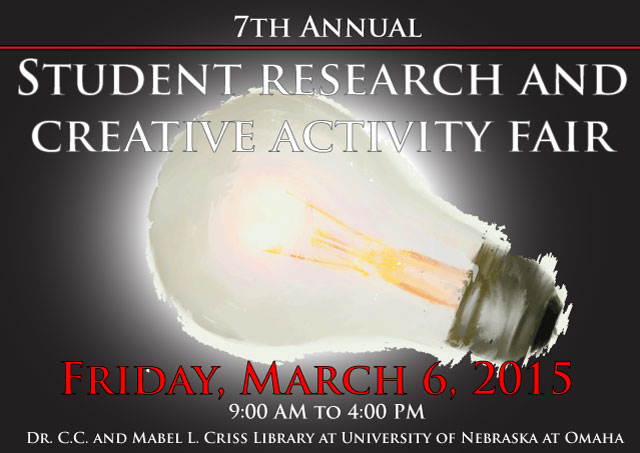
Spies' of the Domestic Sphere: Female Engagement with Empiricism in Evelina and The Female Spectator
Advisor Information
Kristin Girten
Location
UNO Criss Library, Room 249
Presentation Type
Oral Presentation
Start Date
6-3-2015 10:00 AM
End Date
6-3-2015 10:15 AM
Abstract
In The Female Spectator, Eliza Haywood explains the significance of the role of the “spy,” writing: “and this I look upon to be a more effectual way of penetrating into the Mysteries of the Alcove, the Cabinet, or Field, than if I had the Power of Invisibility.” In this passage, I argue that Haywood sets up an opposition between the spy and the “modest witness” (as defined by Shapin and Schaeffer) by insisting that spying offers a better vantage point than a distant and “invisible” observer can ever hope to achieve. The “spy” is, therefore, a role that not only privileges female ways of knowing, but also demonstrates a method of female engagement with empiricism. I argue that viewing the novel, Evelina, by Fanny Burney, through the lens of the work done on Haywood’s Female Spectator offers a new way to approach the role of curiosity, empiricism, and the domestic sphere in eighteenth-century women’s writing. My presentation will demonstrate that Evelina, like Haywood’s Female Spectator, is a “spy” of the social sphere and that her role allows her to examine and understand her position in the domestic sphere, and also disrupt the public/private dynamic, which offers an alternative way of knowing as opposed to the male “modest witness.” Building on the work of L. Lynette Eckersly and Kristin Girten, I will show how women in the eighteenth century were beginning to situate themselves as curious observers within society in opposition to the traditional male observer’s stance, characterized by the “modest witness.” Thus, the work of both Haywood and Burney challenges us to look for new ways to understand the relation of women to empiricism in the eighteenth century.
Spies' of the Domestic Sphere: Female Engagement with Empiricism in Evelina and The Female Spectator
UNO Criss Library, Room 249
In The Female Spectator, Eliza Haywood explains the significance of the role of the “spy,” writing: “and this I look upon to be a more effectual way of penetrating into the Mysteries of the Alcove, the Cabinet, or Field, than if I had the Power of Invisibility.” In this passage, I argue that Haywood sets up an opposition between the spy and the “modest witness” (as defined by Shapin and Schaeffer) by insisting that spying offers a better vantage point than a distant and “invisible” observer can ever hope to achieve. The “spy” is, therefore, a role that not only privileges female ways of knowing, but also demonstrates a method of female engagement with empiricism. I argue that viewing the novel, Evelina, by Fanny Burney, through the lens of the work done on Haywood’s Female Spectator offers a new way to approach the role of curiosity, empiricism, and the domestic sphere in eighteenth-century women’s writing. My presentation will demonstrate that Evelina, like Haywood’s Female Spectator, is a “spy” of the social sphere and that her role allows her to examine and understand her position in the domestic sphere, and also disrupt the public/private dynamic, which offers an alternative way of knowing as opposed to the male “modest witness.” Building on the work of L. Lynette Eckersly and Kristin Girten, I will show how women in the eighteenth century were beginning to situate themselves as curious observers within society in opposition to the traditional male observer’s stance, characterized by the “modest witness.” Thus, the work of both Haywood and Burney challenges us to look for new ways to understand the relation of women to empiricism in the eighteenth century.
